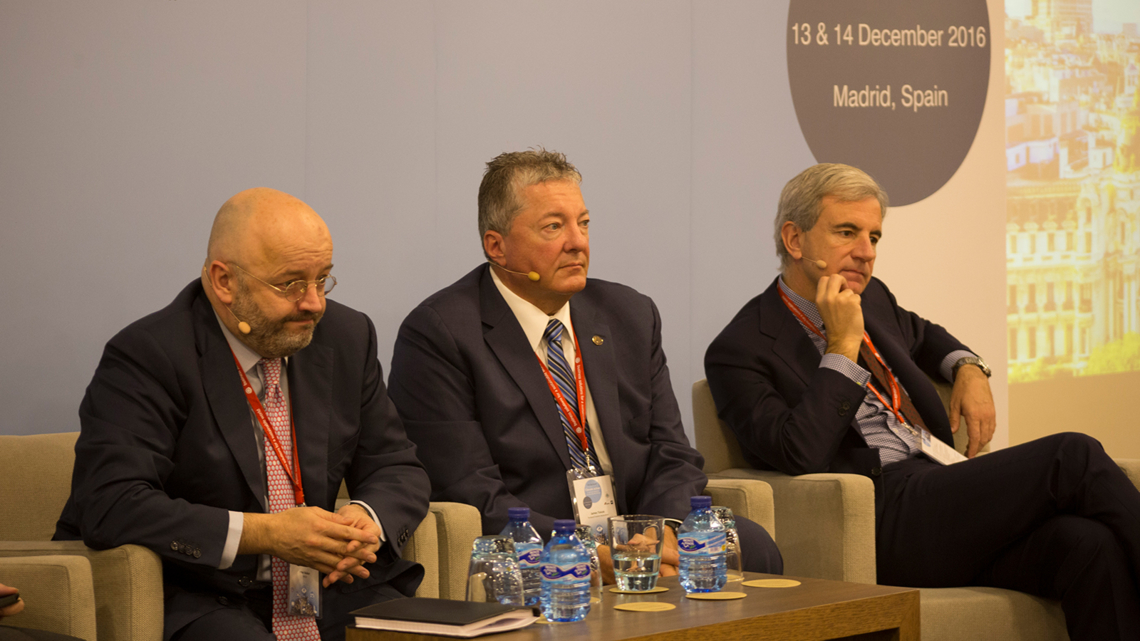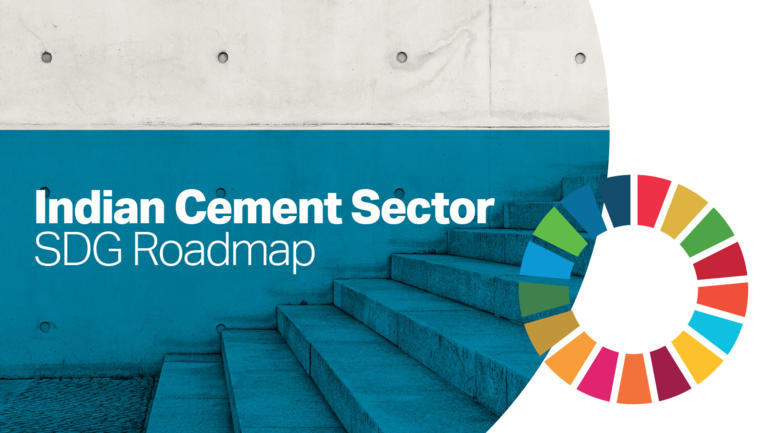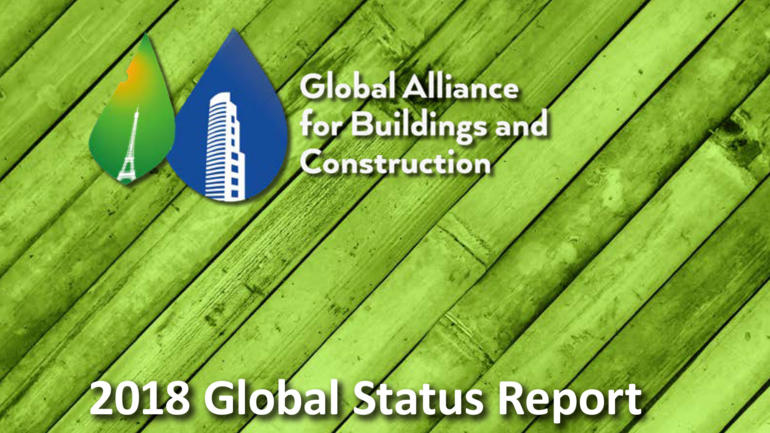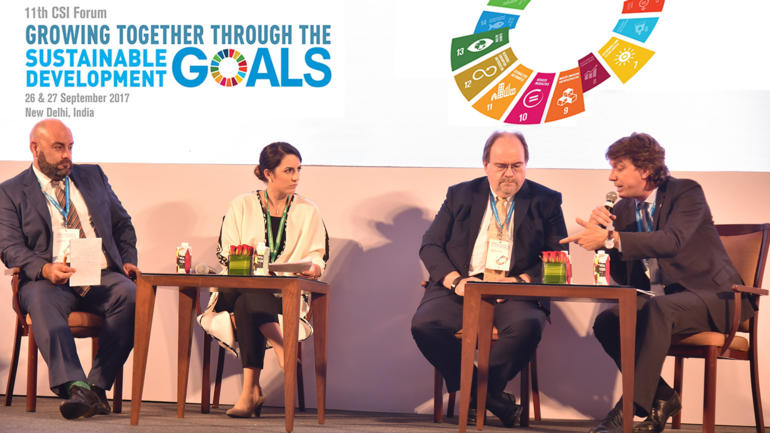Exactly one year after the historical adoption of the Paris Agreement, more than 100 participants convened in Madrid on 13 -14 December to the annual CSI Forum to discuss the role of the cement sector in meeting the crucial global targets on climate and energy.
Since the establishment of the Cement Sustainability initiative (CSI), climate has always been a top priority for the cement sector. This Forum provided an excellent opportunity for experts from the CSI member companies, as well academia, research institutes, NGOs, banks, the UN and trade associations to convene to discuss how to address challenges and how to continue to drive leadership but also have a real impact on emission reduction.
There was a strong, shared recognition of the success of the CSI to date in reaching ambitious goals on climate action. This includes the development of its CO2 and energy database, the ‘Getting the Numbers Right’ (GNR) database, which celebrated his 10th anniversary at the Forum and enables companies to measure and track their progress on emission reduction over time.
There was also widespread acknowledgment of the need for the sector to move more decisively than ever to implement practical and technical solutions to help in limiting the rise in global temperatures to under 2 degrees. Forum participants agreed that climate change poses a risk for the sector and that ‘business as usual will not bring about the changes required to mitigate this risk.
"Participants shared concerns about the challenges in meeting the commitments arising from the Paris agreement and agreed that in addition to further investigation of technical solutions, climate policy, climate finance and market mechanisms all offer channels through which cement companies may help to instigate change and drive action"
During the opening panel on climate policy, WBCSD President and CEO Peter Bakker recognized the tremendous efforts and leadership of the CSI member companies and urged the sector not just to move with the change, but to drive the leadership and innovation required to make that change happen.
President and CEO of Portland Cement Association (PCA)Engagement of stakeholders, communities and people is essential for a policy to succeed driving change
The most positive signal that emerged from the presentations and was the awareness of and support for the irreversible transition towards a low carbon-economy, and that business wants to lead that transition.
Keynote speaker at the Forum, former Executive Secretary of the UNFCCC, Yvo de Boer, explained that while the global climate policy response may not be clear, the broader imperatives for action are increasingly clear. He acknowledged that climate solutions are neither obvious nor easy and reasoned that in this context efficiency, growth, innovation and brand value provide strong arguments for action and are the levers to use when engaging with leaders on the topic of climate action.
Head of the Spanish Government Office of Climate Change“Business growth and climate protection are compatible. Industry has a great role to play in the transition to a new carbon economy”
Breakout sessions examined several topics including climate adaptation, focused on the need for a scientific basis for risk assessment as well as for the need for emissions reduction. The role of the sector in disaster risk reduction was also promoted.
Another session explored how to establish a low carbon and circular economy for the concrete sector. The importance of keeping track of resources use for better decision making was stressed as well as the necessity for a sector to understand the avoided emissions stemming from the use of innovative concrete products.Breakout sessions examined several topics including climate adaptation, focused on the need for a scientific basis for risk assessment as well as for the need for emissions reduction. The role of the sector in disaster risk reduction was also promoted.
In a fascinating and engaging closing panel on climate finance, representatives of the finance sector explained how trillions of dollars of green investment is needed. Speakers from the European Bank on Reconstruction and Development (EBRD), the International Finance Corporation (IFC) and the European Investment Bank (EIB) explained the imperative to move from niche financing to mainstream, in order to guarantee the necessary transition.
Moving forward the CSI will continue its engagement tackling climate change and has an ambitious program for 2017. Efforts will continue in the implementation of the Cement LCTPi. The Global Low Carbon Technology Roadmap for the cement sector will be updated with the newly produced technology papers. Communication and promotional activities around the Getting the Numbers Right will be increased and the avoided emissions through the use of concrete innovative products in the value chain, will be analyzed.
Also, a responsible sourcing certification system for concrete, cement and aggregates will be launched early 2017 demonstrating the continued commitment of the sector towards sustainable development.








